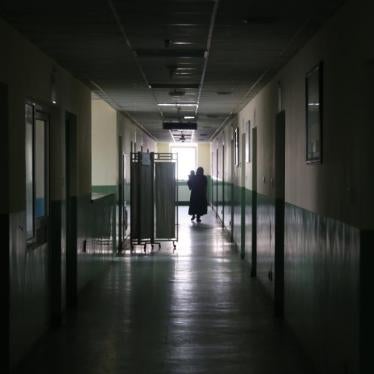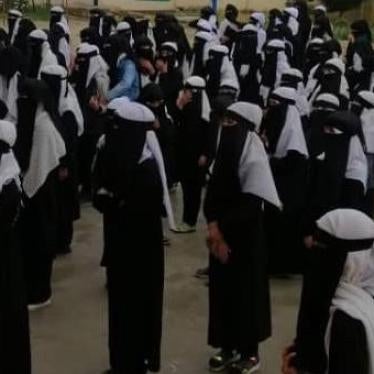A new social media campaign, #FreeHerFace, has Afghan male journalists and others posting selfies with their faces covered, in solidarity with the Afghan women journalists facing a harmful new Taliban decree.
On May 9, the Taliban ordered women and older girls to cover their faces when in public and avoid being outside at all if possible. Punishments for violating the decree would be inflicted on their male family members. Taliban leaders have responded to public outcry by insisting the decree is not mandatory, but their own enforcement efforts contradict those statements. On May 21, the Taliban’s Ministry of Vice and Virtue ordered all women television presenters to cover their faces, stating “the decision was final and that there was no room for discussion.” The rule blatantly violates women’s rights to freedom of expression, as well as personal autonomy and religious belief. It will also prevent access to information for people who are deaf or hard of hearing who lip read or rely on visual speech cues to help them understand people speaking.
In response to the order, male presenters at several major news channels in Afghanistan have worn masks on air in solidarity with their female colleagues – an act that prompted the #FreeHerFace campaign on social media. As one women’s rights activist wrote, “Afghan men showing up for Afghan women is not just a gesture. It’s a turn in the story that will change everything. Brave brothers.”
This latest order is part of steady flow of Taliban actions that have blocked girls’ secondary education, pushed women out of most employment, curtailed women’s freedom of movement, obstructed women’s access to health care, and abolished the system designed to protect women and girls from violence.
It’s time for foreign governments to do much more to raise their concerns. Diplomats meeting with the Taliban should signal support for the #FreeHerFace campaign and speak out publicly against the Taliban’s intensifying violations of the rights of women and girls.
Women journalists are just the latest casualties in what has become the most serious women’s rights crisis in the world. But the Taliban are not immovable, and coordinated pressure has the potential to impact their decisions. Donors and governments owe it to Afghan women and girls to do more to defend their rights.











